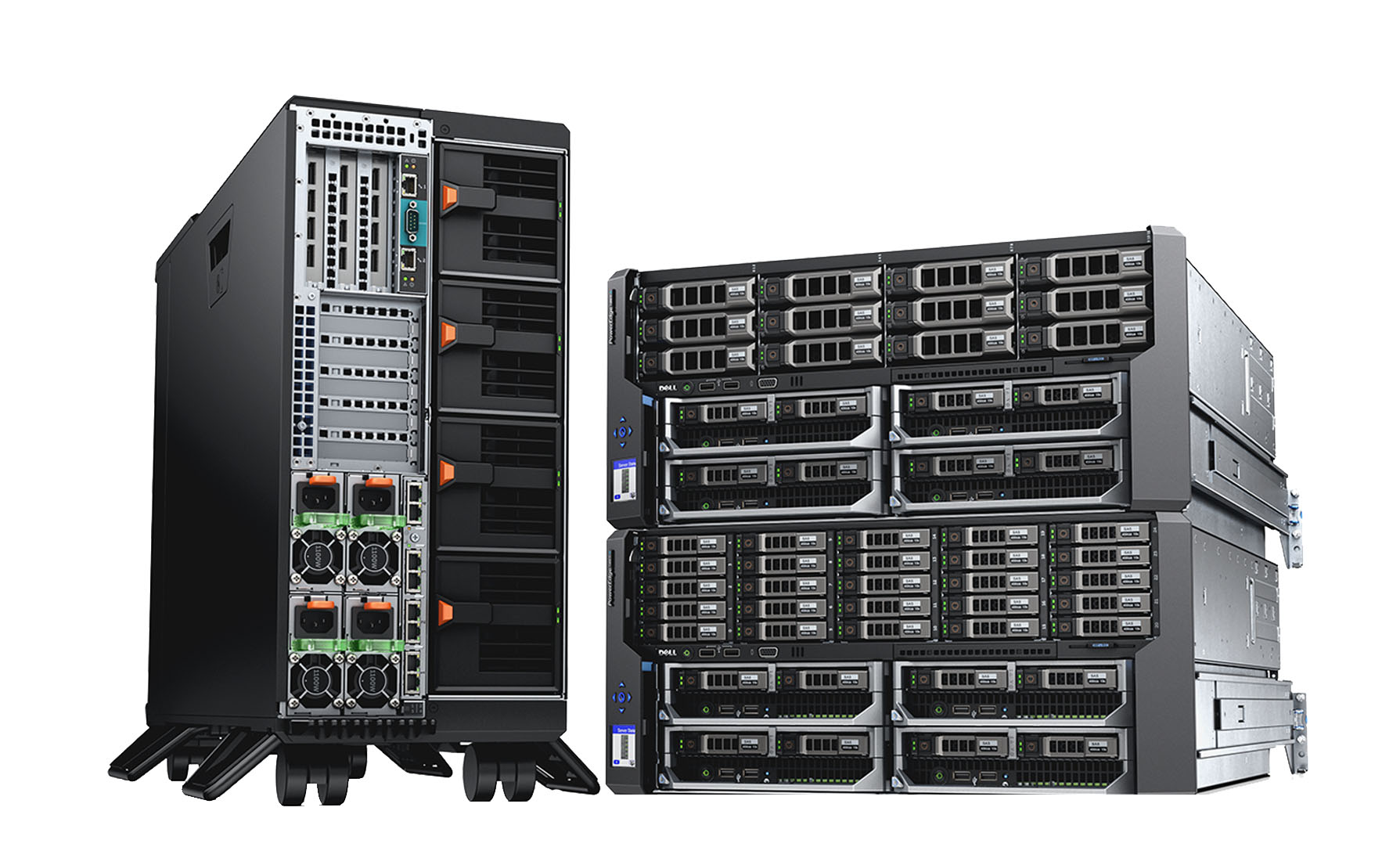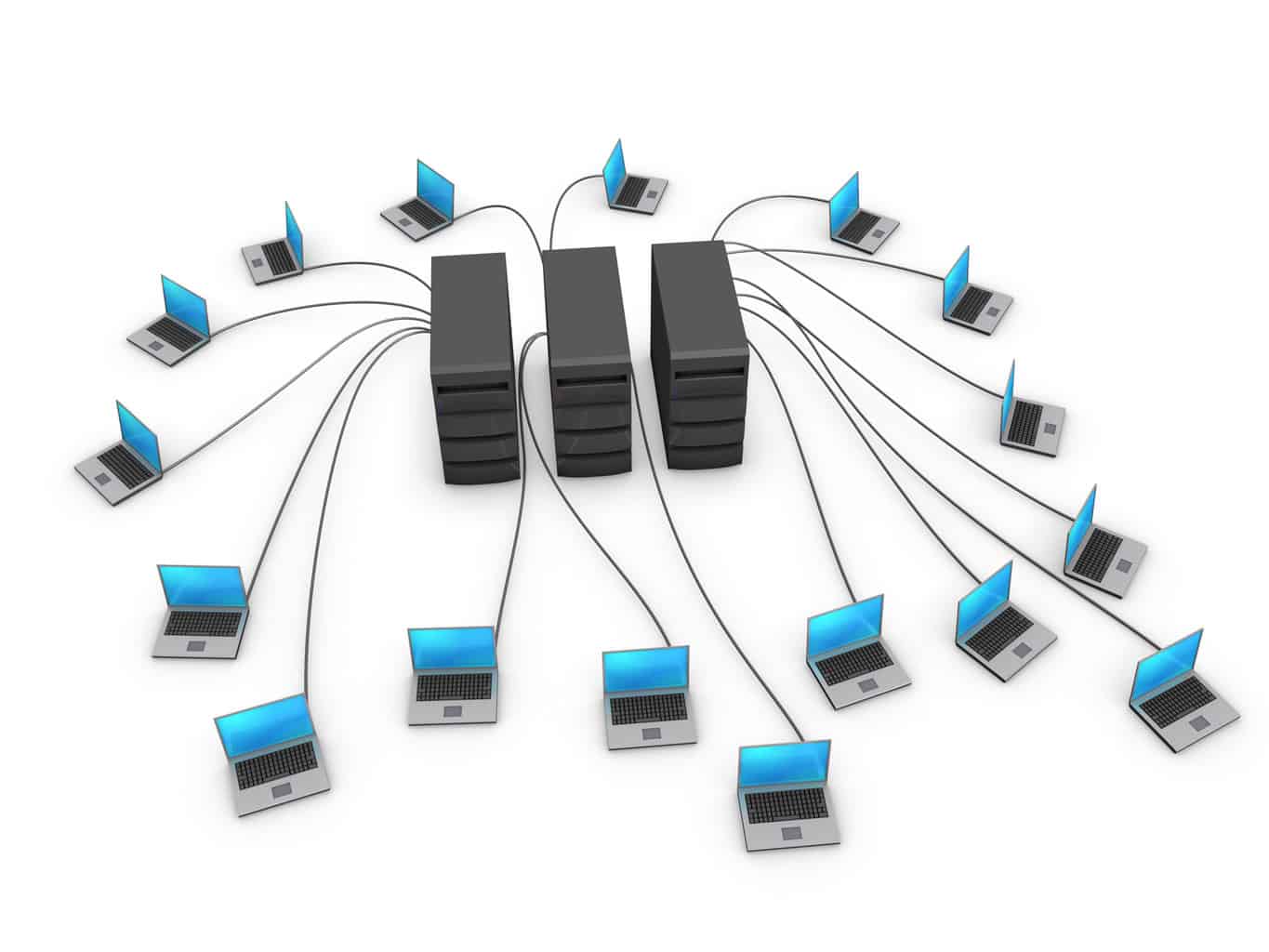The features we offer.
Servers are foundational to the operation and security of modern businesses. They provide centralized management, enhance security, improve performance, and ensure high availability. Servers enable companies to store data, run applications, support remote work, manage websites, and comply with regulations. Without servers, businesses would struggle to operate efficiently and securely in today’s digital age. Whether it’s maintaining internal operations or offering services to customers, servers play an indispensable role in driving business success.



Types of Servers and Their Roles
A server is a powerful computer or system designed to
provide services, resources, or data to other computers, called clients,
over a network. Servers are typically more powerful and reliable than regular
personal computers, as they need to handle multiple tasks, support several
users simultaneously, and operate 24/7 without downtime.
There are various types of servers, including:
Store and manage files, enabling users to access, save, and
share documents.
Web Servers:
Host websites and web applications, handling requests from
users (clients) accessing the internet.
Database Servers:
Store and manage large databases, providing data to
applications or users.
Application Servers:
Host applications, allowing clients to run software remotely
instead of installing it on their own devices.
Mail Servers:
Manage and store email communications for an organization.
DNS Servers:
Convert domain names into IP addresses, enabling proper navigation of the internet.
Why are Servers Important for a Company?
Centralized Data Storage and Management
- Secure
Data Storage: Servers provide a centralized location to store critical
company data, making it easier to manage and back up. Instead of having
files scattered across individual computers, servers allow data to be
stored in one place, accessible to authorized users.
- Data
Sharing: With a server in place, employees can easily share files and
collaborate on documents in real time, regardless of location, as long as
they have network access.
Business Continuity and Disaster Recovery
- Backup
and Recovery: Servers often have backup systems in place to protect
data from being lost in the event of a disaster, hardware failure, or
cyberattack. Companies can implement automated backup processes on servers
to ensure that important business information is stored securely.
- Redundancy: Many servers are configured with redundant components like hard drives or power supplies to ensure continuous operation. This is especially important for businesses that need to operate without interruption.
High Availability and Uptime
- 24/7
Operation: Servers are designed to run continuously, which is crucial
for businesses that need to be operational at all hours. Whether for
providing services online, managing transactions, or ensuring employees
can work remotely, servers enable companies to maintain high uptime.
- Load Balancing: Servers can distribute workloads across multiple devices or systems, ensuring that no single server is overwhelmed by requests. This helps improve the performance and reliability of business applications and websites.
Security and Access Control
- User
Authentication: Servers help secure company data by implementing user
authentication and permissions. Only authorized personnel can access
specific resources, ensuring that sensitive information remains secure.
- Centralized
Security: Security measures like firewalls, antivirus programs, and
encryption can be applied centrally on servers, making it easier to
enforce consistent security policies across the organization.
- Monitoring: Servers can be equipped with monitoring tools to track network traffic and detect suspicious activities. This can help detect breaches early and mitigate potential threats.
Scalability
- Growing
with the Business: Servers can be scaled to meet the evolving needs of
a business. As the company grows, the server infrastructure can be
upgraded or expanded (e.g., more storage, additional servers) to
accommodate increasing data and traffic demands.
- Virtualization: Server virtualization allows multiple virtual machines (VMs) to run on a single physical server. This improves resource utilization and enables companies to manage multiple applications or services without needing additional physical hardware.
Supporting Remote Work and Collaboration
- Remote
Access: With a server, employees can securely access company files,
applications, and data from anywhere, making remote work easier and more
efficient. Companies can set up secure Virtual Private Networks (VPNs) or
use cloud-based servers for remote access.
- Collaboration Tools: Servers host collaboration tools like email, chat applications, project management platforms, and video conferencing software, enabling employees to work together, even if they are not physically in the same location.
Hosting Websites and Applications
- Web
Hosting: Servers can host company websites or e-commerce platforms.
Businesses rely on web servers to ensure that their online presence is
accessible 24/7. Whether it's an informational website, a customer portal,
or a complex e-commerce store, web servers handle all the requests from
users.
- Application Hosting: Companies also rely on servers to host custom applications, ERP systems, or CRM software, which helps streamline operations and improve customer service.
Increased Performance and Speed
- High
Processing Power: Servers are equipped with powerful processors, more
memory, and faster storage devices, enabling them to process large amounts
of data more efficiently than typical computers.
- Optimized for Heavy Workloads: While personal computers may struggle to handle high numbers of requests or complex tasks, servers are designed to handle these loads efficiently. They provide better performance for websites, databases, and applications.
Simplified IT Management
- Centralized
Management: Having servers in place simplifies IT management because
IT administrators can monitor and maintain the company's entire
infrastructure from one central point. This reduces the complexity of
managing multiple individual machines and ensures consistency in updates,
patches, and configurations.
- Automated Updates and Maintenance: Servers can be set up to automatically apply security updates and patches, ensuring that the system remains up to date without requiring manual intervention.
Compliance and Legal Requirements
- Data
Compliance: Many industries have strict regulations regarding data
privacy and storage (e.g., GDPR, HIPAA, PCI-DSS). Servers can be
configured to meet these compliance standards by implementing proper data
security measures, encryption, and access control.
- Auditing and Reporting: Servers can generate logs and reports that track user activity and data access, which are useful for audits and meeting compliance requirements.

